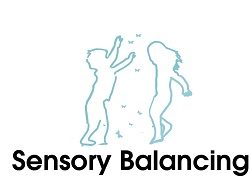“Why does my kid freak out when everyone sings and claps during birthday parties?”
“Suddenly my child can not tolerate the sounds of our chewing and gets angry and raged during mealtimes”
“Mommy my ears hurt, turn down the volume” (While everyone else in the room is comfortably enjoying the movie)
Many of the kids I see at my clinic complain about sensitivity to noises, sometimes it is accompanied with aversion to smells, going around hugging kids, bumping into things, and sometimes it just appears out of the blue and there is no other complaint, so I thought it was about time I write a blog to help distinguish between 2 different diagnoses: SPD and Misophonia.
Misophonia is a rare sound sensitivity disorder which is characterized by an extreme aversion to certain sounds such as chewing, scratching, throat clearing, humming, and more. For each person the variety of sounds might differ. Exposure to such sounds results in extreme anxiety or anger and even rage. Some conditions might cause great inconvenience, like when a child can not tolerate to eat with their family or friends since hearing others chew their food “drives them crazy”. Some kids can’t stand the sound of the chalk while the teacher is using it to write on the board which can be a huge issue for them in the classroom. Some kids suffer great stress from being misunderstood by others who presume they are merely exaggerating. Although I work with many kids that were either diagnosed with Misophonia or it was something we diagnosed along the way, I must prepare you that such conditions might also suddenly appear in adults.

“My Child feels rage during mealtimes over the sounds of chewing we make”How I treat Misophonia
As I do with any other condition, I check to see what was the underlying cause, since in many cases I would need to treat that as well. Then I locate the imbalance and work on that. It usually takes about 3-5 sessions to clear the condition.
Other treatment modalities include working with an Audiologist to desensitize and working with a psychiatrist to treat underlying emotional conditions.
SPD – Sensory Processing Disorder affecting the sense of Hearing
SPD is a condition where a person’s brain misinterprets information that is taken from the senses (smell, taste, smell, touch, hearing, sense of space, sense of movement, sense of balance). With SPD you can either be hyper-sensitive which for the sense of sound would be like you have an amplifier causing you to hear sounds much louder than they actually are, or hypo-sensitive which means you hear sounds much softer than they actually are.

“Mommy my ears hurt! Why are they singing so loud?” (During a birthday party when everyone else seems happy and comfortable
Common cases I see at my clinic are kids that cover their ears at birthday parties when everyone is singing, children that cry in restaurants when it gets too loud, kids that run out of the cinema screaming, etc. The common ground to these cases is that for these kids, sounds that might seem a bit louder to most of us, actually “hurts their ears”, or in milder cases causes them to be overwhelmed and upset.
How I treat SPD
In some cases, kids come to my clinic with a “formal” diagnosis of SPD. In other cases, there is no formal diagnosis but after a careful examination, I find/suspect that they do have SPD. In both cases it is usually a combination of symptoms rather than just one single complaint such as sensitivity to sounds.
I begin the session with a diagnosis determining what is the cause, followed by diagnosing which imbalances cause the sensory and many times also emotional imbalances. It usually takes about 5 times to notice a dramatic change.
Other treatment modalities are occupational therapy which uses activities to help their nervous system integrate with their senses.
Wondering if your child is suffering from SPD or Misophonia? Send me an email to discuss further
Diclaimer: Information and statements made here are for education purposes and are not intended to replace the advice of your doctor. The views and advice expressed in this blog are not intended to be a substitute for conventional medical service. If you have a severe medical condition or health concern, see your physician.
